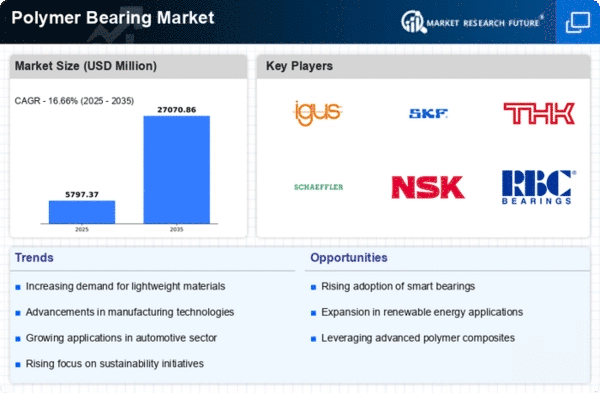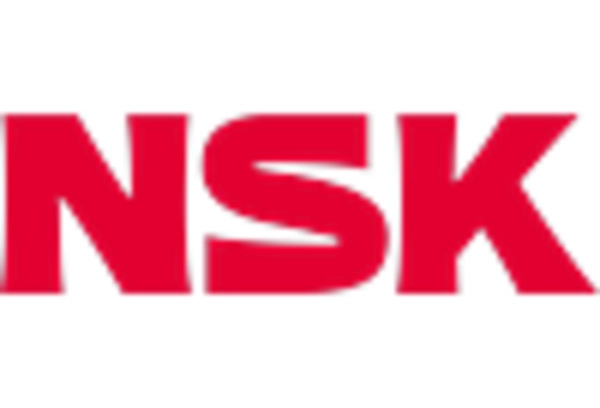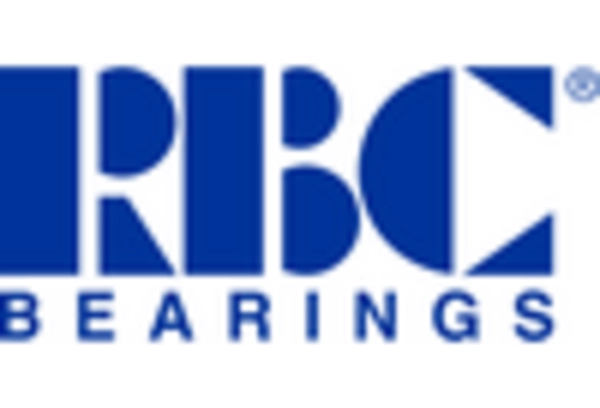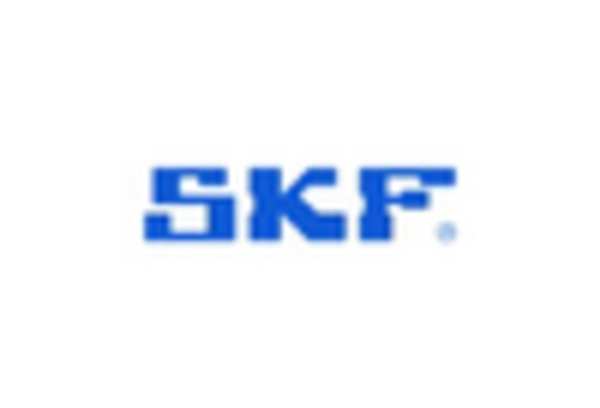Market Analysis
In-depth Analysis of Polymer Bearing Market Industry Landscape
Dynamic changes in the polymer bearing market are being driven by a growing demand for reliable and high-performance bearing solutions in various industries. Polymer bearings made of synthetic polymers such as polytetrafluoroethylene (PTFE), nylon, and acetal have several advantages, including corrosion resistance, self-lubrication, and compatibility with various operating conditions. One of the factors that affect the market dynamics is a continuous focus on reducing maintenance costs while improving operational efficiency across industries such as automotive, aerospace, or other machinery-dependent sectors. The polymer bearing market is highly influenced by the automobile industry, where they find application in different components like suspension systems, transmissions, interior mechanisms, etc. As the automotive industry aims at lighter vehicles to reduce noise levels and increase fuel economy, the use of polymer bearings has greatly increased. In addition, the industrial machinery sector plays an important role in influencing the dynamics of the Polymer bearing markets. These are used in many industrial applications, from conveyor systems to pumps and compressors. The need for reliable, low-maintenance bearings within industrial machinery combined with the benefits offered by polymers drives their uptake. Similarly, advancements in technology relating to manufacturing processes and formulation of polymers also determine the dynamics of polymer bearings. Polymer materials undergo continuing research endeavors so as to enhance their mechanical properties, wear resistance, and load-carrying capabilities. Blends and composites of polymers lead to better-performing bearings under challenging conditions, hence making them applicable across industries and sectors. In fact, self-lubricating polymer bearings offer a solution to maintenance-free requirements for critical applications. However, challenges exist in the polymer-bearing market, such as constraints in high-temperature applications, load capacity concerns, and competition from alternate-bearing materials. For instance, Polymer bearings may be restricted in applications where high temperatures are common because certain polymers have temperature limits compared to conventional metal bearings. The dynamics of the polymer-bearing market are constantly changing due to research and development activities. Efforts are ongoing to enhance tribological properties, thermal stability, and resistance to harsh chemicals by developing advanced polymer formulations. In this regard, there have been innovations in the design and geometry of polymer bearings to improve load distribution and optimize performance under various operating conditions. This is consistent with the industry's commitment to environmental responsibility through research into sustainable and recyclable polymer materials that support circular economy principles.


















Leave a Comment